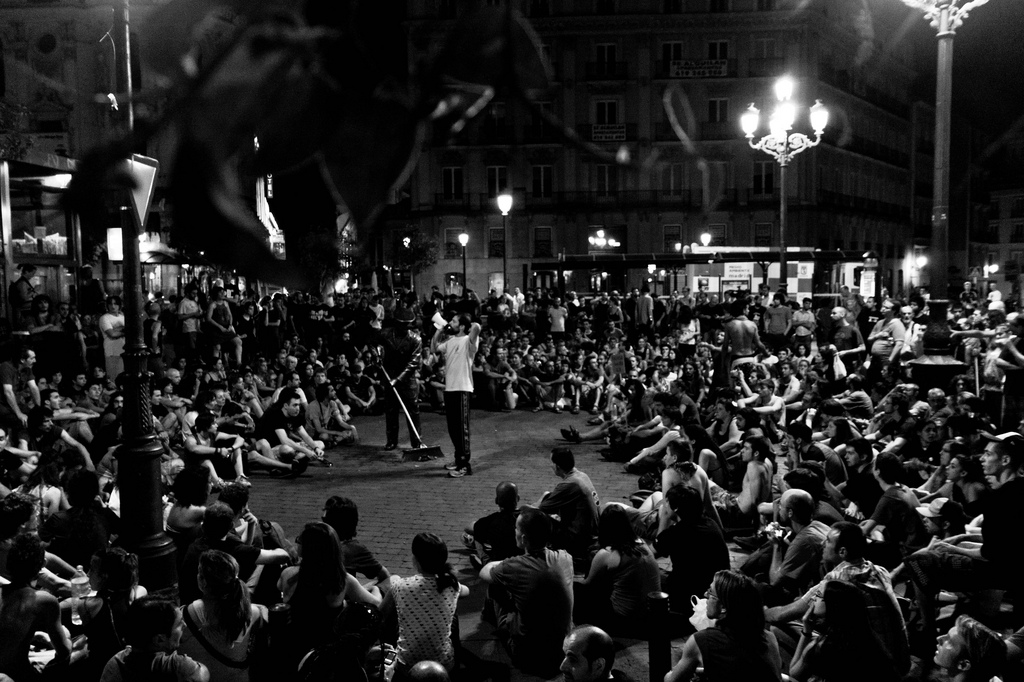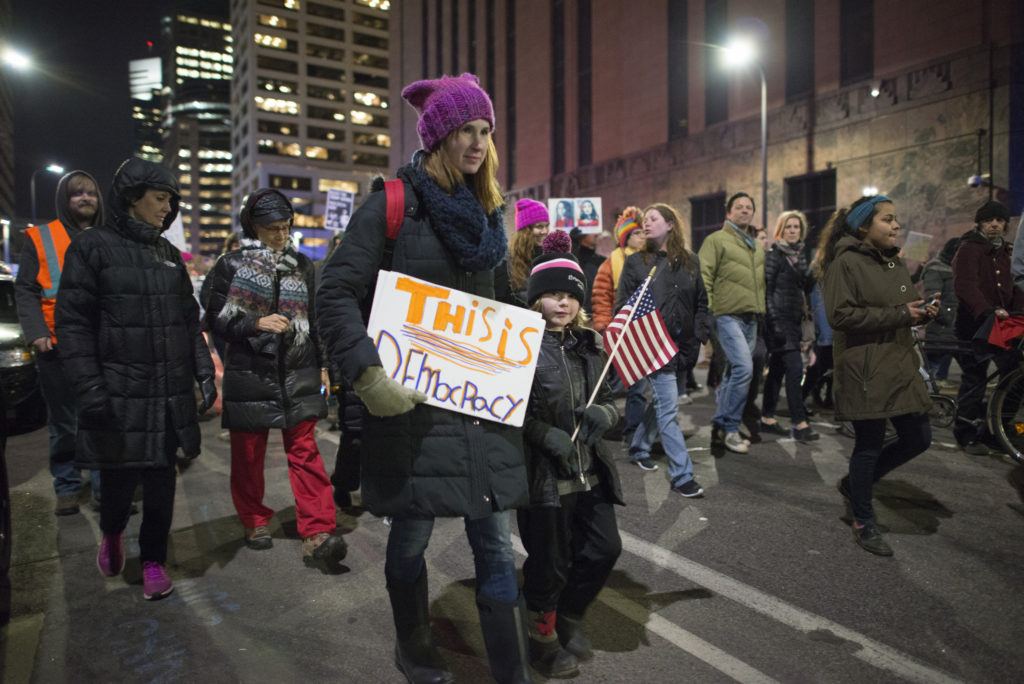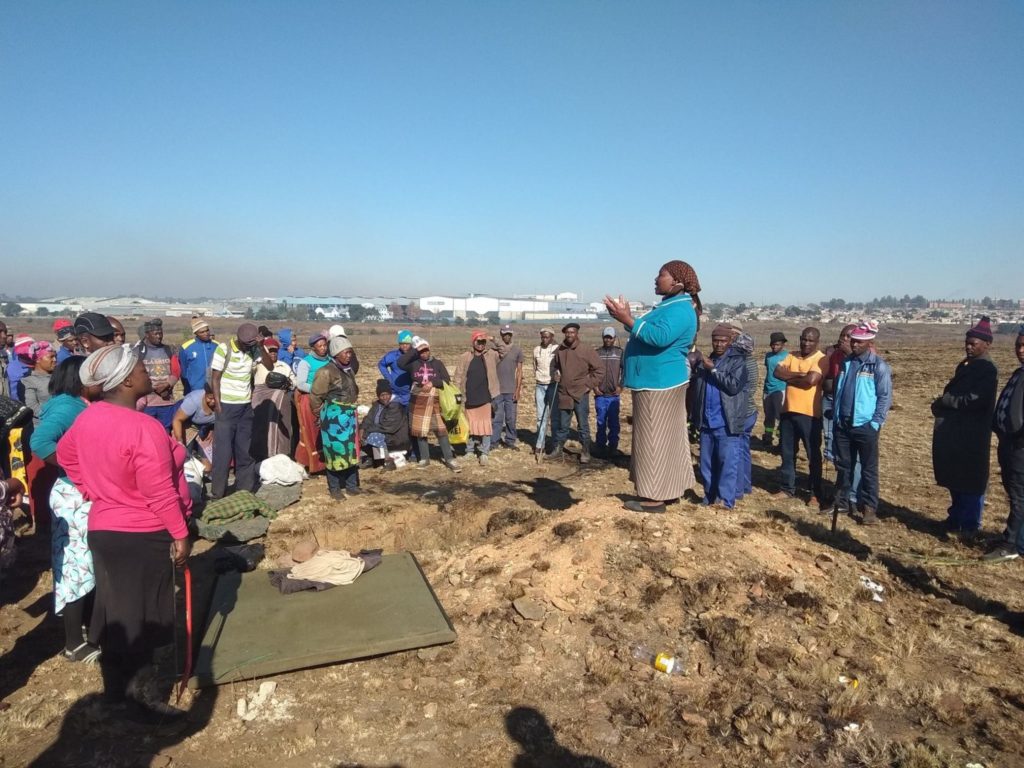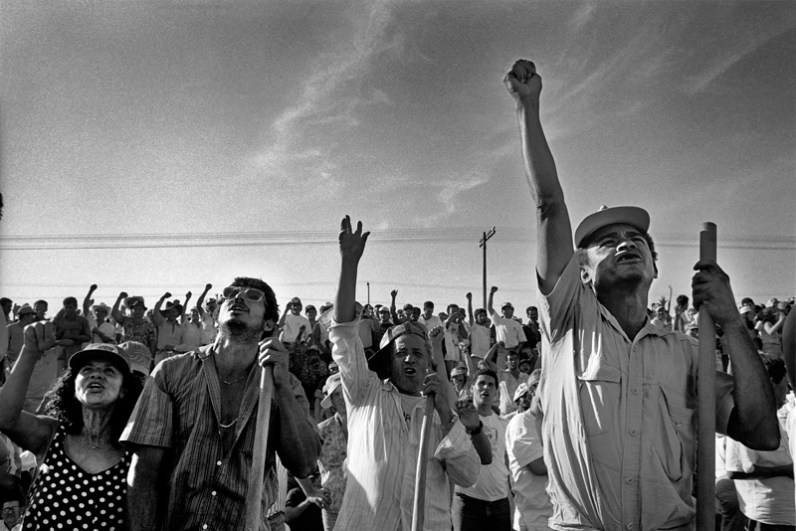
by Tizz Bee
We are entering dire times. The United Nations Intergovernmental Panel on Climate Change recently released their 2018 report that has only reassured what many of us know is true. We need to take immediate decisive action on climate change or face a dismal future of increasingly powerful natural disasters, economic instability and reactionary violence.
According to the report, we have 12 years to stop inalterable climate change and that is going to require massive global infrastructure projects aimed at transforming our archaic fossil fuel system to one rooted in sustainable development and ecological understanding. Such a project will clearly be one of the largest developmental efforts in human history and will require global collaboration on a scale never seen before.
Yet, in the face of almost certain annihilation, the transnational ruling class are in a desperate struggle to maintain and profit from the ruin and disaster of their own system. For progress to occur, we need to build a mass movement of millions across the world united behind a call for a new system. And, threatened by new despotic right wing authoritarian regimes worldwide, we need to scale up fast!
According to Abdullah Öcalan, we can understand almost all of today’s crises to be crises of democracy. While the ideal of democracy was used to legitimize imperialist interventions across the developing world since the 1950s, it was never a lived reality even in the West. Instead we were sold shallow representative republicanism in place of real face-to-face direct democracy where individuals have actual power over society.
Representative ‘democracy’ ultimately turns people from empowered citizens to alienated constituents. It turns democracy—a lived, empowering and involved process—into a spectacle of rooting for one’s chosen team. And so it lends itself to oligarchy and, ultimately, dictatorship and imperialist expansion.
In fact, since the end of the Second World War we have witnessed a massive decline of civic engagement, with far lower in-person participation in community associations, clubs and groups of all kinds. Not to mention a decline in wages and an increase in inequality—both in the West and internationally. As society and political structures have been increasingly centralized in the hands of a wealthy few, they have also closed people off from access to power.
Representative ‘democracy’ ultimately turns people from empowered citizens to alienated constituents. It turns democracy—a lived, empowering and involved process—into a spectacle of rooting for one’s chosen team. And so it lends itself to oligarchy and, ultimately, dictatorship and imperialist expansion. This has been the case of representative democracies from the time of Rome.
A politics of empowerment
Libertarian municipalists argue for a reinvigoration of the civic and political sphere. In place of representative forms of democracy they argue for an inclusive participatory system where every community member has equal power over the matters of governance that impacts them.
Libertarian municipalism is a politics of empowerment. It recognizes democracy as an almost universal value. It begs the question, will we as a society finally embrace actual democracy or accept dictatorship? Libertarian municipalists absolutely reject the representative republicanism that has been peddled to us as “democracy”, a form of government that, in practice, is only a democracy for the rich.
At the core of the libertarian municipalist strategy for change is the creation of the popular assembly and its eventual empowerment as a dual power. Dual power is a situation where two powers coexist with each other and compete for legitimacy.
Libertarian municipalists seek to either create extra-parliamentary assemblies that increasingly gain governing power from local governments or seek to change city charters to legally empower popular assemblies as the primary policy making bodies over representative and hierarchical structures such as mayors and city councils. They envision the municipalization of the economy, where productive assets are held by the community collectively. They strive to build a global network of communities, neighborhoods and cities interlinked through confederal bonds. According to Murray Bookchin,
In libertarian municipalism, dual power is meant to be a strategy for creating precisely those libertarian institutions of directly democratic assemblies that would oppose and replace the State. It intends to create a situation in which the two powers—the municipal confederations and the nation-state—cannot coexist, and one must sooner or later displace the other.
The popular assembly thus acts as a place that gives any individual in a community direct access to power, shaping policy and the world around them. This is in direct conflict with the hierarchical nation-state and transnational capitalist firms which seek to control the labor, land and resources of communities across the world.

Cities and towns at the forefront
Today the tensions between cities and state entities couldn’t be more pronounced. The sanctuary city movement provides a stark example of the way cities across the country are already moving towards increased local autonomy and sovereignty over the federal government. Sanctuary cities such as San Francisco, Los Angeles, New Orleans are just a few of the over 39 cities across the US who have joined forces to limit collaboration with federal authorities. According to Vojislava Filipcevic Cordes,
Sanctuary cities in the U.S. represent a feat against the hostile state and “provide a territorial legal entity at a different scale at which sovereignty is articulated” [18]. Sanctuary cities exemplify what Lippert has termed “sovereignty ‘from below’” [19] (p. 547) and are shaped by local legal and political contexts and the solidarity with social movements.
In the wake of an increasingly illegitimate federal government, urban areas take leadership on issues ranging from immigration to raising minimum wages, even if it is in direct conflict with the federal government. Along with this trend, we see growing political divides between urban and rural communities. After the 2018 election, Republicans lost their last congressional urban district in the country.
As the cultural and political divide between rural and urban, local and federal become more pronounced in an era of increasing authoritarianism, it seems that the revolutionary alternatives provided by libertarian municipalism could have the wide appeal and potential support of millions of Americans needed to create political change.
As the cultural and political divide between rural and urban, local and federal become more pronounced in an era of increasing authoritarianism, it seems that the revolutionary alternatives provided by libertarian municipalism could have the wide appeal and potential support of millions of Americans needed to create political change. But what will that mass movement look like? How can we build the power to force politicians to stop pandering to the fossil fuel industry and the fascist right, and bring about real change?
The left must rebuild political life
Bookchin was one of the key theorists behind libertarian municipalism. In his essay, “Thoughts on Libertarian Municipalism“, he put forward a strategic vision for this kind of movement that we can still learn from today. He begins by describing libertarian municipalism as “ a confrontational form of face-to-face democratic, anti statist politics…that is decidedly concerned with the all-important question of power, and it poses the questions: Where shall power exist? By what part of society shall it be exercised?”.
For Bookchin, the decline of civic and political life is of paramount concern. With its decline, Bookchin sees a vacuum forming in mainstream political discourse where leftist positions have increasingly degraded and shrunk into insular and subcultural discourses while broader society continues to be trapped in an Overton window swiftly moving towards the right.
Bookchin felt it was essential that the left find ways of reaching the broader society with its ideals. He envisioned the institutionalization of popular assemblies not only as an end but as a means. Assemblies would work to level the playing field for the left by giving it a place to both voice its vision for a new world to the public and to reinvigorate a american political life through the popularization of civic ethics rooted in valuing democracy, ecology, and social justice.
Bookchin was interested in the whole revolutionary pie, not just crumbs. As such, libertarian municipalism is a political framework that intentionally engages with that essential political question of: who has power and how should it be wielded? It is a politic that centers the conflict over who has power in society and mobilizes for popular control over existing institutions. As such, Bookchin went to great lengths to distinguish the libertarian municipalist organizing philosophy from other tendencies. He describes one tendency which is often confused with libertarian municipalism, sometimes called communitarianism:
“Communitarianism is defined by movements and ideologies that seek to transform society by creating so-called alternative economic and living situations such as food cooperatives, health centers, schools, printing workshops, community centers, neighborhood farms, “squats,” unconventional lifestyles, and the like”
While such efforts may benefit the people they directly work to serve, they often rely on donations or self funding by their organizers and only serve small numbers of people. The amount and time required to maintain these programs often leads to burnout and massive resource sucks. They inevitably compete with existing social services or capitalist enterprises, leading many to eventual collapse.
While some argue that such programs are necessary to “attune” people to participation in democratic assemblies, or to gain their interest, Bookchin argues that people by and large are already ready for direct democracy, all that is missing is the incentive of such institutions offering people real power over their daily lives.
Legitimacy crisis
As states across the world abandon the enlightenment values of liberal humanism, they only rely on the principle of might as a right, cult of personalities, and populist white supremacy.
Some argue that the rise of the right across the world means that we have to reassert the power of the state—and build up those services it has started to abandon. However, the legitimacy crisis of the state in this country is not the result of it providing less services—it is the result of the complete denigration of moral authority invested in the halls of government. As states across the world abandon the enlightenment values of liberal humanism, they only rely on the principle of might as a right, cult of personalities, and populist white supremacy. As such, we must diligently develop popular assemblies and organizations, training people in the art of civic engagement and duty. We need to put our arguments forward and we need to create space for other people to do the same. We need to advance our ethics. To acquire actual power is an utmost priority in our increasingly authoritarian and hierarchical society that denies us it. The goal of libertarian municipalism is thus total community control over an entire municipality.
By focusing on gaining popular control of the instruments, resources, and institutions currently wielded by the ruling class or local economic elites, communities could gain access through redistribution to the necessities of life in much longer-lasting and meaningful ways. For Bookchin, municipalism must center a redistributive political strategy. While much left strategy today prioritizes the creation of alternative economic institutions such as cooperatives or mutual aid programs, libertarian municipalism emphasizes the creation of the alternative political institution of the popular assembly. By focusing our time and energy on the creation and empowerment of these alternative political institutions working class people would eventually be able to gain access to an entire cities economic resources rather than the simply what can be collectively shared from the wage labor of other exploited peoples.

An example from South Africa
A great example of a political organization that advances these principles is Abahlali baseMjondolo, a.ka., the South African Shack Dwellers Movement. This organization is based in the struggle of South Africa’s most impoverished, and emerged out of struggles for poor peoples’ right to construct improvised dwellings to live in. They are oriented around a directly democratic assembly model. They regularly engage in direct action through land occupations where they give people control of the land. Their movement has been successful in arguing for a form of democratic development where all peoples have a voice over urban development. Despite harsh repression, including the murder of many of their activists by state forces, they are quickly becoming one of South Africa’s largest left organizations with over 30,000 members, and chapters and elected officials in cities and towns across the country. They are pushing the imagination of what a directly democratic society could look like, while prioritizing political confrontation.
They describe their organizational model as a “party non-party”, for the way it engages in the political sphere, of running candidates and legislation as a normal political party yet different considering their organizational model and tactics, and in the sense that such candidates must have the mandate of popular assemblies while running only in local elections. The South African Shack Dwellers movement is agitating around that essential political question of “Where shall power exist and who shall exercise it?” in ways that put the question to the public at large. Its combination of direct democracy, direct action, and strategic local electoralism has made Abahlali baseMjondolo one of the most prominent political organizations in one of the worlds’ only countries where the left seems to be winning. As the rest of the world fears fascism, socialist land redistribution is being discussed in South Africa and Abahlali baseMjondolo has a prominent voice in leading this process. This South African movement shows the power of running insurgent candidates who are beholden to expressing the immediate necessity of establishing directly democratic dual power situations in our communities, cities, and municipalities.

Fighting fascism with full democracy
In times of fascist dictatorship, we are likely to find broad appeal in fighting to salvage and develop an actual democracy.
As a movement, libertarian municipalism is a marginal tendency even within the left. For these ideas to hit the grander stage, we need to communicate them in bigger ways, develop local assemblies, build a base through engaging in local fights and run insurgent candidates on our revolutionary platform. Simply put, we need assembly-based municipalist platformist organizations like the South African Shack Dwellers Movement, that are able to elevate our political positions and make them visible. Where our ideas enter into mainstream public discourse and where our organizations give people real access to power over their daily lives and existing institutions.
We need to build on the cultural fabric of an America that values a certain conception of democracy through bringing the term’s contradiction into full light while offering our alternative. In times of fascist dictatorship, we are likely to find broad appeal in fighting to salvage and develop an actual democracy. Further, there is a need to prepare ourselves for the inevitable dark and trying times we face, as our political situation in the United States has become increasingly volatile and unpredictable.
Our very survival over the coming years is at stake. In the face of a completely hostile fascist state and a growing right wing militia movement who very soon could begin purges against the left as Steve Bannon’s friend Jair Bolsonaro, the Brazilian dictator-in-waiting is promising, we should be developing self defense programs to protect not just our organizing communities but our communities at large from persecution.
The establishment of a popular direct democracy would imply the popular control, radical reform or the outright abolition of police forces in favor of some form of volunteer defense forces who would be under the jurisdiction of the new popular government. Such a force could fill the essential duties of community defense and safety, while allowing our communities to address many of the systemic issues with our current racist, white supremacist policing and criminal justice system.
Unless we rapidly begin communicating coherent programs for libertarian municipalist dual power I fear that we will have little real ability to stop this inevitable fascist creep. In times of dictatorship, rising fascism and hopelessness we need to offer people real lived examples of direct democracy, give them access to power and boldly put these ideas into public discourse. We can win the legitimacy battle by building a base through engaging in local campaigns that give people more power and control over their lives and communities. We can do this alongside running candidates with revolutionary municipalist platforms, even if we don’t think they have a chance. If our ideas are true and we are true to ourselves we might just end up winning!
We shouldn’t fear putting our ideas out there, communicating our desired world and our utopia, even if we don’t have all of the organizational bits and pieces put together to prefigure it. We never will until we abolish these systems. We have to get comfortable with that and stay true to our ethics and vision and communicate that in bigger and better ways while giving others inspiration to join in, shape it and work with us to push the world off its tracks to oblivion.
Tizz Bee is a community organizer based in Portland Oregon. They were a key outside support organizer with the Sept. 9th international prison strike and have co-founded several communalist projects including Demand Utopia.
To receive our next article by mailing list, subscribe here.